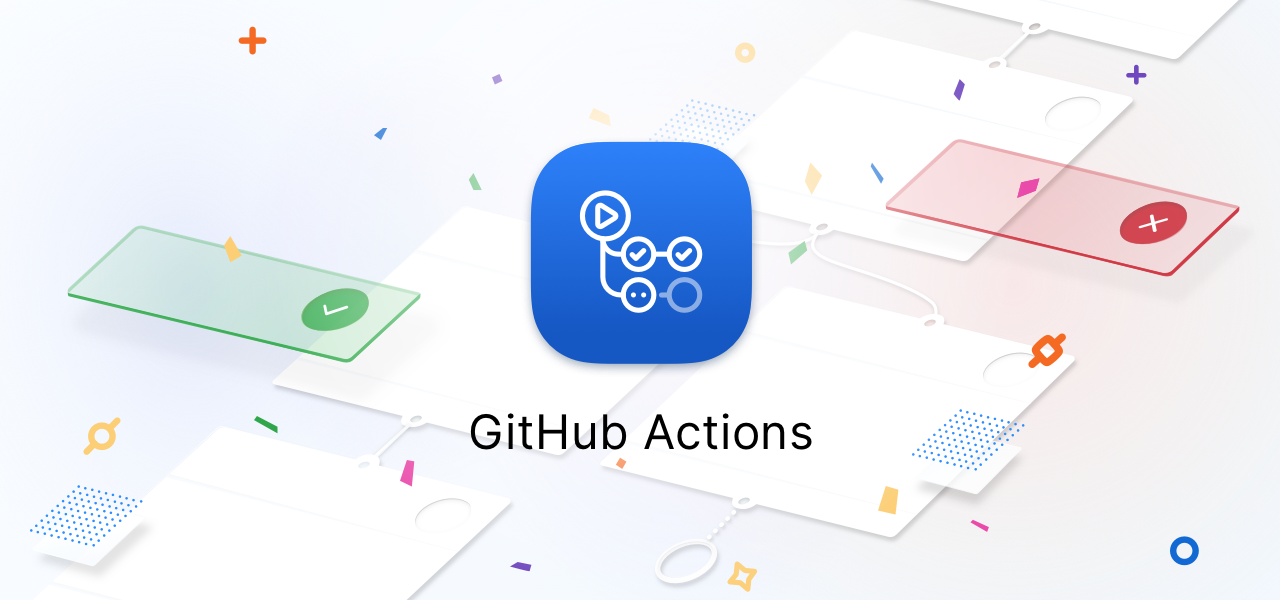Powering community-led innovation with GitHub Actions
As we celebrate Actions becoming generally available, check out some of the ways teams are contributing to Actions—and how you can start automating more of your workflow.

Last year at Universe, we released GitHub Actions, a new way for developers to automate workflows directly from their repositories. Actions are shareable, reusable, forkable, and infinitely customizable—just like any other code—and we’ve been amazed and humbled to watch the community build on each other’s work. As Actions becomes generally available this week, we’re reflecting on a big year for workflow automation.
An ever-expanding Actions Marketplace
Since releasing Actions in November of last year, the community has contributed over 1,200 Actions to GitHub Marketplace. Developers can automate everything from Tweet collaboration, to WordPress publishing, and even GitHub itself. Solutions from the community have also popped up for widely-adopted products, including Vault, Datadog, and Jenkins. Automated environment setups for GitHub Actions in Node.js, Python, Java, Go, Ruby, PHP and .NET have been contributed by community members as well.
GitHub partners have contributed enormously to Marketplace, so teams can extend and automate workflows with their existing tools. Some of the most popular Actions from GitHub partners include:
- Atlassian for automating JIRA
- Twilio for sending SMS messages in your workflow
- Cloudflare for deploying a Cloudflare Worker
- SonarCloud for scanning code quality
- JFrog for setting up and configuring the JFrog CLI
- Mabl for automated functional testing
We’re looking forward to growing the Actions ecosystem with our partners even more and helping developers do what they do best: bring new ideas to life.
A faster path to container, Kubernetes, and serverless cloud deployments
In August of this year, when we introduced Actions for CI/CD, one of the immediate asks from our users and customers was to further streamline the path from code to cloud. We’re excited to partner with Amazon Web Services, Google Cloud, and Microsoft Azure to ensure that teams are able to develop, deliver, and deploy to their cloud provider of choice directly from GitHub.
Amazon Web Services
AWS today announced a set of Actions that support Amazon ECS deployment and a Starter Workflow to build and deploy a container to an Amazon ECS services, powered by either AWS Fargate or Amazon EC2. This will allow Actions users to continuously deploy development or production workloads to Amazon ECS, directly from a GitHub repo, without additional tools or manual point-and-click steps. These Actions support both the serverless Fargate launch type, and the EC2 launch type for users requiring more granular, server-level control.
Google Cloud
Google Cloud has released a repository for a library of Actions providing functionality for working with Google Cloud Platform. It includes an updated Action to configure the Google Cloud SDK for use in Actions workflows. The repository also includes a complete Google Kubernetes Engine example that employs a GKE Starter Workflow released today.
Microsoft Azure
Yesterday, Microsoft announced the general availability of GitHub Actions for Azure for creating workflows to package, release, and deploy apps to the cloud from GitHub. They include starter workflows for popular languages and frameworks, Actions for working with a variety of Azure services, from Web Apps to serverless Functions, as well as Azure SQL and MySQL databases. Microsoft has also released Actions for building and deploying container-based applications that work with Docker and Kubernetes on any environment and cloud, in addition to their managed Azure Kubernetes Service.
Actions in the enterprise
Businesses we work with are realizing the benefits of using GitHub Actions, including reduced build and ship times for applications, and increased efficiency for development teams.
- Pinterest has migrated their use of the Texture framework to Actions, allowing their teams to build, test, and deploy right from GitHub. They’ve reduced their build time by nearly 90%, from 80 minutes to only ten minutes, freeing developers to focus more on building applications.
- Decathlon reuses existing Actions and develops new ones to automatically create a release note and push to the Wiki page for its respective repository. “Everything is done automatically. We see Actions as an extension of our continuous integration,” says Alexandre Faria, Decathlon’s Lead Engineer for developer tools.
- Dow Jones already uses Actions to automate a number of developer workflows. “GitHub Actions enables us to automate cybersecurity and governance at the earliest stages of product development. Where previously we would have required three servers to host and manage our pipeline, we are now able to replace them with a single Action,” says Sydney Sweeney, Lead Cyber Security Engineer.
Join the community
If you’re still new to Actions, there are a few ways to get started:
- Visit the Actions tab in your repository
- Learn at your own pace with our Learning Lab course
- Browse the starter workflows for a head start on automating your workflows
- Check out Actions in GitHub Marketplace for some inspiration
It’s been an incredible year working with developers, teams, and businesses to see what GitHub Actions can do in the real world. We’re thankful to everyone—from individual contributors to our largest enterprise customers—in developing the Actions ecosystem in the past year, and we can’t wait to see how the next year unfolds.
Tags:
Written by
Related posts

When to choose GitHub-Hosted runners or self-hosted runners with GitHub Actions
Comparing GitHub-hosted vs self-hosted runners for your CI/CD workflows? This deep dive explores important factors to consider when making this critical infrastructure decision for your development team.

Enhance build security and reach SLSA Level 3 with GitHub Artifact Attestations
Learn how GitHub Artifact Attestations can enhance your build security and help your organization achieve SLSA Level 3. This post breaks down the basics of SLSA, explains the importance of artifact attestations, and provides a step-by-step guide to securing your build process.

Streamlining your MLOps pipeline with GitHub Actions and Arm64 runners
Explore how Arm’s optimized performance and cost-efficient architecture, coupled with PyTorch, can enhance machine learning operations, from model training to deployment and learn how to leverage CI/CD for machine learning workflows, while reducing time, cost, and errors in the process.